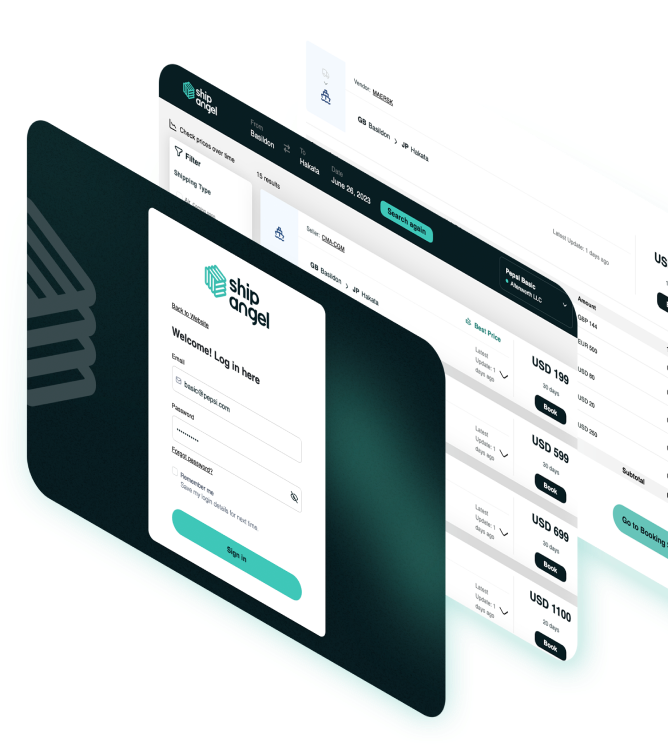-2.png)
The landscape of global trade is facing increased complexity and expense as the U.S. government considers imposing substantial fees on Chinese-built vessels docking at American ports. This initiative, part of a broader strategy to rejuvenate the U.S. shipbuilding industry and counter China's dominance in maritime sectors, has elicited significant concern from shippers and industry stakeholders.
Details of the Proposed Fees
In February 2025, the Office of the U.S. Trade Representative (USTR) proposed a tiered fee structure under Section 301 of the Trade Act of 1974:
- Chinese-Owned Vessels: Up to $1 million per port entry.
- Non-Chinese Operators Using Chinese-Built Ships: Up to $1.5 million per port entry.
- Operators with Chinese-Built Fleets: Fees vary based on the proportion of Chinese-built ships in their fleet:
- 50% or more: $1 million per vessel entry.
- 25%–50%: $750,000 per vessel entry.
- Less than 25%: $500,000 per vessel entry.
Additionally, operators with pending orders from Chinese shipyards may face similar fees upon delivery. Conversely, the proposal includes potential refunds of up to $1 million per port entry for operators employing U.S.-built vessels in international services.
Industry Response and Concerns
The USTR conducted public hearings on March 24 and 26, 2025, where over 60 industry representatives from sectors including agriculture, energy, and retail expressed apprehensions. The consensus highlighted potential escalations in operational costs, supply chain disruptions, and adverse effects on U.S. exports.
Michael Hanson, Senior Executive Vice President of Public Affairs at the Retail Industry Leaders Association (RILA), stated, "If enacted, these policies will disrupt the flow of commerce, add regulatory burdens, and increase costs on American manufacturers and consumers." RILA, along with other trade organizations, emphasized that the proposed fees could increase shipping costs by at least 25%, translating to approximately $30 billion in annual expenses for U.S. businesses and farmers.
Agricultural sectors echoed similar concerns. Richard Gupton of the Agricultural Retailers Association remarked, "The costs could be passed on to farmers in the ag sector from these shipping companies they're targeting. We think there should be a more balanced, long-term approach."
Market Adjustments
In anticipation of the potential fees, oil traders and shipping companies are proactively adjusting their operations. Reports indicate a deliberate move to avoid chartering Chinese-built vessels for U.S.-bound shipments, aiming to mitigate prospective financial impacts.
Legislative Developments
The Trump administration is reportedly drafting an executive order to bolster U.S. shipbuilding capabilities and diminish reliance on Chinese-built ships. The proposed measures include imposing fees on Chinese-built vessels and offering tax incentives to stimulate domestic ship production. This initiative aligns with broader efforts to address national security concerns and revitalize the U.S. maritime industry.
Implications for Shippers
The proposed fees represent an additional layer of complexity for shippers already navigating various tariffs and surcharges. Beyond the direct financial implications, there is potential for carriers to alter port rotations to circumvent fees, potentially leading to congestion at major ports and increased inland transportation costs. Ultimately, these expenses may be transferred to consumers, potentially dampening demand for various goods.
As the situation evolves, shippers and stakeholders must remain vigilant, adapting strategies to mitigate risks and manage costs effectively in this shifting trade environment.
About Ship Angel
Ship Angel is a cutting-edge rate management platform for direct shippers, offering innovative solutions in rate management, amendment guard, invoice auditing, and sustainability reporting. Powered by AI, Ship Angel helps shippers manage rates efficiently, ensure contract accuracy, and optimize cost savings. With a commitment to transparency, Ship Angel works across industries to help companies avoid costly disruptions and stay ahead in a rapidly evolving global trade environment.
Want to Ensure a Smooth Supply Chain?
 Graham Parker
Graham Parker
 April 8, 2025
April 8, 2025

